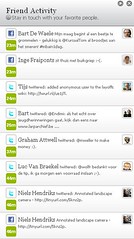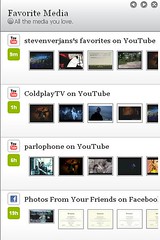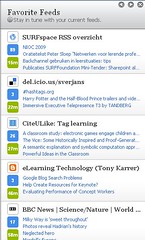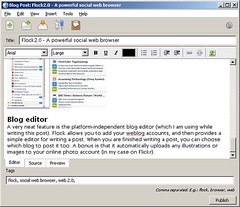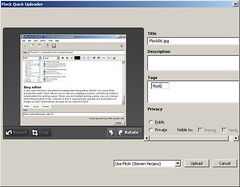
Platform is a Drupal-based community site that brings together News, Blogs, Forums, Study-related Issues and some more informal stuff like games, competitions, etc. After the info, some comments - off the top of my head:
- Platform is open for anyone to join - you needn't be a student, staff member or alumnus to register. This is positive, because it allows others to get a bit of a feel for what's going on On-campus.
- The standard open blogging function in Drupal has been switched off for registered users, thus limiting the interaction possibilities. Users can, however, submit content to the site or participate in forum discussions, but both types of user-content are moderated by site supervisors. This has the effect that the site feels very much like a student bar, where the institution sets the rules and hands out the drinks, and users are only allowed to choose at which table they want to sit..
- The added value of registering on the site is that you can rate, tag and comment on stuff that appears on the site. These user actions are not pre-moderated (they appear immediately after posting them), but they are probably scanned by the site supervisors anyway. This adds a nice touch, but - to stay within the metaphor.
- Currently, the link with the institution's virtual learning environment is non-existing, nor is there a clear link to the institutional website. As such, the community site feels a bit like an 'in-between' place to be. And not really integrated to form a 'single user-experience'.
- In allowing rating, annotation and tagging - RAT, for short - Platform has achieved one of the goals of the OUNL's goals in setting up new user-centered services.We also want to offer rating, annotation and tagging of items. We are not entirely certain of which items we want to open up to user feedback. The OU-UK has chosen to allow feedback on 'safe' items on the platform, and not items on their institutional homepage or in the virtual learning environment.
- Our ideas of integrating the community aspects of the OUNL in an integrated personal workplace would bring together the formal and informal communication related to the student/stakeholder in one single place. We intend to minimise the barrier between the learning environment and the community environment, which will hopefully enhance the user experience of the OUNL as an integrated campus.
- Finally, our idea of the personal workplace for all stakeholders starts from the main assumption that the user is in charge, and not the institution. We will be offering different information and interaction services in an integrated environment, but the user will be in control.

